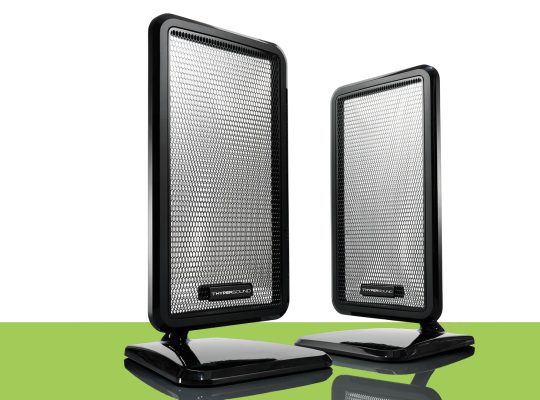A persistent beep, hum or hiss in your ear. Not an outside sound, but one produced by your brain itself. Tinnitus – also known as tinnitus – occurs in about 1 in 5 people. And while the causes are complex, one connection is increasingly striking: the link between tinnitus and stress.
But what exactly is that like? Can stress make you get tinnitus? Or does tinnitus actually make you stressed? And what can you do to break this vicious cycle?
In this blog we dive deeper into the relationship between stress and tinnitus. No dry theory, but practical insights, recognizable examples and tips to give your ears as well as your head some rest.
What is tinnitus?
Tinnitus is the perception of sound without an external sound source. People with tinnitus often describe the sound as:
- a beep or whistle
- a humming or buzzing sound
- rustling, gurgling or tapping
- a combination of the above sounds
For some, it is continuous; for others, it comes in fits and starts. And for many people, tinnitus is a signal of an underlying problem – such as hearing damage, a middle ear problem or nervous system overload.
What is stress?
Stress is the body’s natural response to pressure or threat. In stressful situations, your body produces hormones such as adrenaline and cortisol. Useful when you need to run away from danger, but less nice when that stress becomes chronic.
Long-term stress affects almost everything: your sleep, your concentration, your mood and your physical health. And yes: also on your hearing.
How are stress and tinnitus related?
The relationship between stress and tinnitus is complex and often works both ways:
1. Stress can cause or worsen tinnitus
When you experience prolonged stress, your nervous system becomes overstimulated. This affects the way your brain processes sound. Your auditory system is “on,” so to speak, and can begin to perceive or amplify spontaneous sounds – even without any real outside stimulus.
Muscle tension in the neck, jaw or shoulders (common with stress) can also affect blood flow to the ear and amplify tinnitus symptoms.
2. Tinnitus can cause stress
Conversely, tinnitus itself can be a source of stress. Especially if the noise is constant, it keeps you awake at night, or you feel like you have no control. It can lead to:
- sleep problems
- fatigue
- irritability
- anxiety
- gloom
And that in turn reinforces your stress response, causing the tinnitus to be perceived as even louder or more annoying. This creates a vicious cycle.
Why do you hear your tinnitus just when you want to unwind?
It seems unfair: you hear it less during the day, but as soon as you plop down on the couch or lie in bed, it’s suddenly there – that beep or buzz. Why is that?
Actually, it makes perfect sense: when ambient noise is eliminated, the tinnitus is extra noticeable. And when your mind calms down, your brain gets more “space” to pick up internal signals – including the sound of tinnitus.
In this, your attention plays a big role. The more you focus on it, the stronger the sound is experienced. A bit like you can suddenly hear your heartbeat as soon as you pay attention to it.
Tinnitus is not a disease, but a signal
It is important to know: tinnitus is usually not an isolated disease, but a symptom. A signal from your body that something is out of balance. That can be physical – such as hearing damage or a jaw problem – but also emotional or mental. Stress, tension, overstimulation: they can all contribute to the onset or intensification of tinnitus.
And that also means you can do something about it. You may not always make the sound go away, but you can influence your reaction to it.
What can you do for stress-related tinnitus?
There is no universal solution, but there are many ways to get a handle on tinnitus and the stress associated with it. Here are some tips that can really make a difference:
1. Provide moments of rest in your day
Consciously schedule breaks away from stimuli. No screen, no music, no conversations. Just be for a while. Regular relaxation helps your nervous system unwind.
2. Exercise daily
Walking, cycling, yoga or swimming: exercise reduces stress levels as well as stimulating good circulation, including in your ears. Choose something you enjoy, and you’ll stick with it.
3. Breathing and mindfulness
A simple breathing exercise – for example, 4 counts in, 6 counts out – activates the parasympathetic nervous system (your resting system). Mindfulness can also help you be less focused on your tinnitus.
4. Avoid overstimulation
Crowded rooms, loud music, endless scrolling on your phone: it eats up energy. Try to consciously dose stimuli. If necessary, use hearing protection in busy situations – that too can help give your system a rest.
5. Sleep is sacred
Poor sleep exacerbates both tinnitus and stress. Make sure you have a regular sleep schedule, a quiet bedroom and avoid screens in the last hour before you go to sleep.
6. Use background noise as an aid
Soft music, nature sounds or a white noise machine can help bring the tinnitus noise to the background. In this way, you give your brain an alternative to focus on.
7. Talk about it
Tinnitus can feel lonely – especially if people around you don’t understand it. Talk about it with those around you or seek support from a professional or peers. There are also tinnitus coaches and audiology centers that offer counseling.
And hearing protection?
That, too, is an important factor. If your tinnitus was caused in part by noise damage, it is smart to protect your hearing properly from now on – for example, at festivals, during odd jobs or at work. Good earplugs (preferably with music filters or custom-made) prevent further damage and can reduce overstimulation.
Tinnitus and stress: you are not powerless
Tinnitus can be drastic, especially when it comes along with stress. But the good news: there are ways to deal with it. By reducing stress, you increase the chances that tinnitus will diminish – or at least be less present.
Do you continue to have symptoms? Then it is wise to seek help. Your family doctor, audiologist or a specialized therapist can work with you to see what works best in your situation.
You don’t have to do it alone.
Want to learn more about hearing protection, tinnitus or earplugs that dampen stressful sounds? Then take a look in our webshop or contact us. We are happy to help you – with knowledge, attention and peace of mind for your ears.








